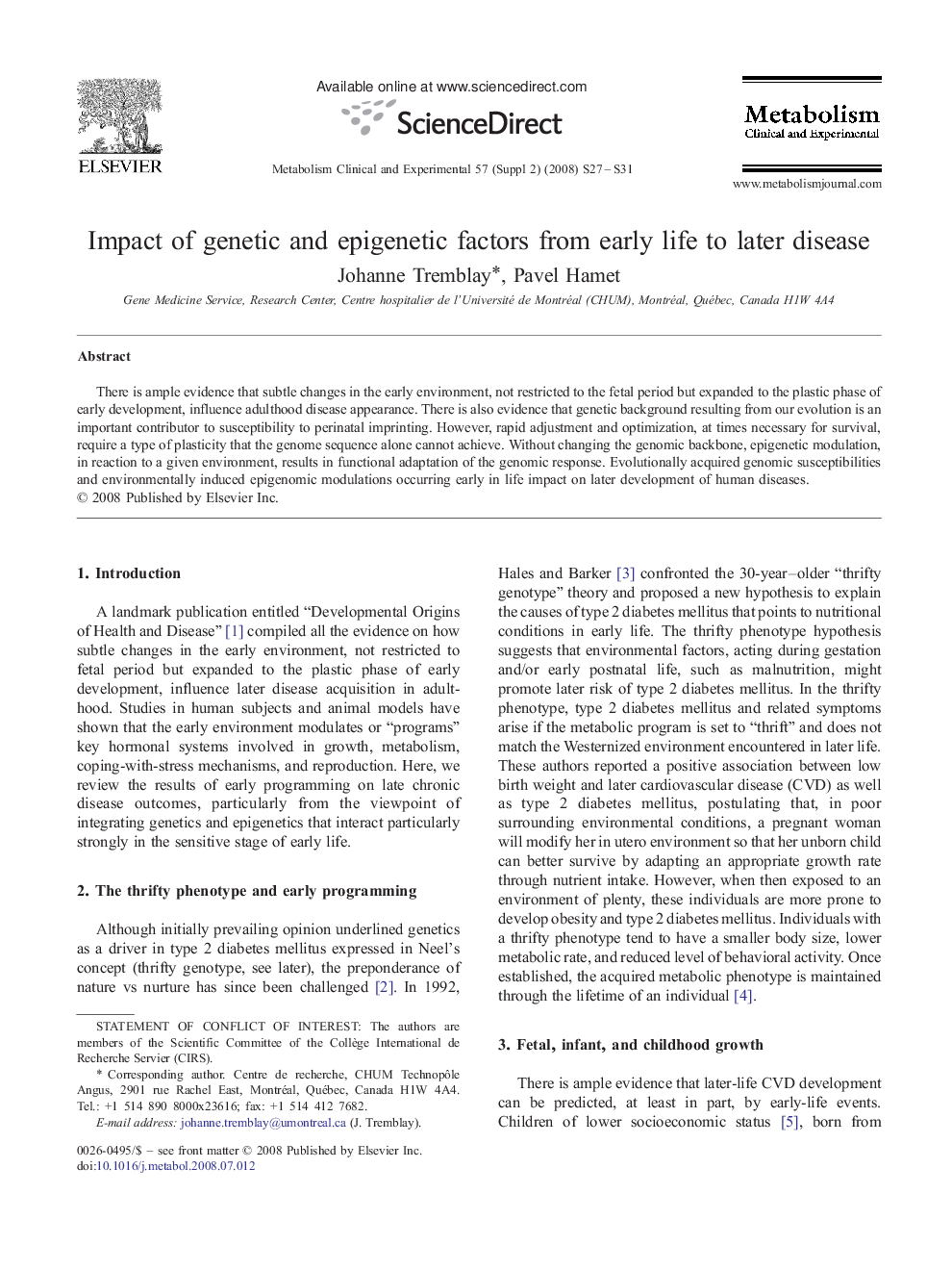| Article ID | Journal | Published Year | Pages | File Type |
|---|---|---|---|---|
| 2807579 | Metabolism | 2008 | 5 Pages |
There is ample evidence that subtle changes in the early environment, not restricted to the fetal period but expanded to the plastic phase of early development, influence adulthood disease appearance. There is also evidence that genetic background resulting from our evolution is an important contributor to susceptibility to perinatal imprinting. However, rapid adjustment and optimization, at times necessary for survival, require a type of plasticity that the genome sequence alone cannot achieve. Without changing the genomic backbone, epigenetic modulation, in reaction to a given environment, results in functional adaptation of the genomic response. Evolutionally acquired genomic susceptibilities and environmentally induced epigenomic modulations occurring early in life impact on later development of human diseases.
